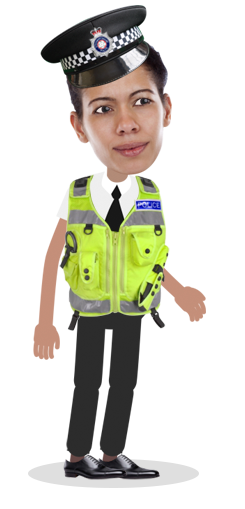This page will take 5 mins to read
Further investigation
Further investigation is all about following the evidence and lines of enquiry. The Police should inform you when;
- They have arrested someone
- Interviewed under caution
- Released without charge
- Released on police bail
- Any changes or cancelations to bail conditions
At this time the police will be taking statements from the victim and any witnesses, which is a formal means of recording personal accounts of the crime.
Once an investigating officer has sufficient evidence, they may formally interview the suspect.
This may be:
- At their home or other place (Not under arrest)
- By appointment elsewhere (Not under arrest)
- At the police station by appointment – voluntary interview (Not under arrest)
- At the police station in custody (Under arrest)
Obviously for serious crimes, suspects are under arrest and interviewed in custody.
A suspect is then formally given the opportunity to admit, deny, explain or make no comment to the allegations.
How often will I be updated about the investigation?
The police will keep you up to date at important points in the investigation. You can agree with the investigating officer how often you would like to hear from them. Depending on the type of crime, it can take quite a long time to gather all the information that is needed. Find out how long the average criminal case takes.
If you haven’t yet, at this time you can make your Victim Personal Statement
Under the Victims’ Code, you are entitled to make a VPS at the same time as you make a witness statement to explain what happened when the crime took place. More information on the Victims Code can be found online here.
A Witness statement can also be a Victim Statement. This statement forms the core of your evidence that is firstly accessed by Police, then the Crown Prosecution Service, the Defence Lawyer and finally the Court. In the first instance your victim or witness statement provides police with further lines of enquiry such as possible CCTV from the location of the incident if available, clues to other possible witnesses, description(s) of possible offender(s), clues to possible vehicles involved or location of possible forensic evidence.
A VPS is a statement that you can give to the police (or any agency or organisation assigned by the police to take the VPS on their behalf) if you have been a victim of crime. It is your way of telling the criminal justice system about the crime you have suffered and the impact it has had on you, whether physically, emotionally, psychologically, financially or in any other way.
The two stages of making a VPS
The VPS considered by the courts
The VPS can be made at any time prior to the sentencing of the offender. This VPS is used by the courts. The VPS can be made at any time prior to the sentencing of the offender. When a defendant is found guilty, the VPS is considered by the court as far as it considers appropriate when determining the sentence.
The VPS considered by the Parole Board
The VPS can subsequently be updated for submission to the Parole Board as part of the offender’s parole review. The purpose of this VPS is to tell the Parole Board the impact of a crime on the victim and to enable them to assess whether it is safe to release the offender or to move them to an open prison.
x Close
What happens after all of the further information has been gathered?
Next section: What happens after the further investigation?Last modified 22nd February 2017



What if English is not my first language?
Do not worry if English is not your first language or you have a disability as Police will provide specialist Interpreters to attend and assist you to obtain accurate and detailed information.




 Completed Section
Completed Section  Current Section
Current Section  Not Started Section
Not Started Section
 Swipe to view stages
Swipe to view stages
 Reporting a crime
Reporting a crime The Police Investigation
The Police Investigation Going to court
Going to court After sentencing
After sentencing Support after sentencing
Support after sentencing
